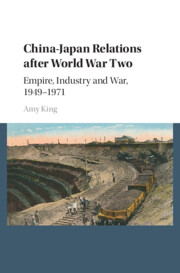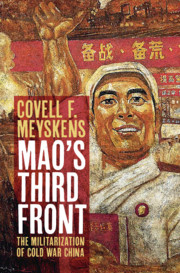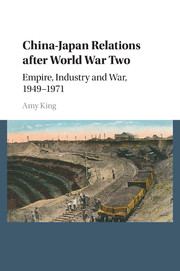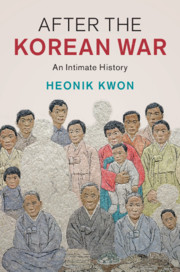Cold War Island
During the height of the Cold War in the 1950s the small island of Quemoy in the Taiwan Strait was the front line in the military standoff between Chiang Kai-shek's Republic of China and Mao Zedong's People's Republic. Local society and culture were dramatically transformed. Michael Szonyi uses oral history, official documents, and dissident writings to convey the history of the island during this period. In so doing, he sheds light on the social and cultural impact of the Cold War on those who lived through it, as well as on the relationship between China, the United States and the USSR at this critical moment. By analysing the effects of Quemoy's distinctive geopolitical situation on the economy, gender and the family, and citizenship and religion, the book provides a new perspective on the social history of Cold War relations, showing how geopolitics can affect individual lives and communities.
- A gripping account of a dramatic episode in the Cold War played out between America, the USSR and China on the island of Quemoy and its reverberations through the twentieth century
- Based on previously untapped archives and interviews with the islanders who share their personal experiences
- Students from across the fields of Asian history, Cold War history, international relations, geopolitics, gender studies will want to read this
Reviews & endorsements
"…a thought-provoking antidote to all the literature that focuses on the 'high politics' of the Cold War, while ignoring its impact on local communities. Informative, well-written, and entertaining, it approaches the Cold War through local eyes, thus making a significant contribution to our understanding of the impact of this conflict around the globe." - Beth A. Fischer, University of Toronto
"Michael Szonyi has found a whole new way to write the history of the Cold War, combining detailed local history with world politics. With immense skill, he links the stories of the islanders to a wider narrative of the conflict between east and west. This is one of the most powerful books yet written on Cold War culture in Asia." - Rana Mitter, Oxford University
"Impeccably researched and elegantly written, Szonyi's Cold War Island breaks new - and fertile -ground in the social history of the Cold War in East Asia, and at the same time delivers a sobering meditation on the consequences of militarization for all of us." - David Ownby, Université de Montréal
"Szonyi offers an extraordinary retelling of the history of the Cold War in Asia. This is the Cold War as few will recognize it - seen not from the intoxicating heights of state power, but from down in the villages of a few off-shore islands in the Taiwan Strait. The result is one of the most surprising and entertaining new books on 20th-century China." - Timothy Brook, University of British Columbia
"The reason Cold War Island is such a persuasive account is that the author is everywhere cautious but thorough. When he claims something, you believe him, and this is in essence not because of his academic credentials but because of his style. Michael Szonyi is neither a sensationalist nor a slave to modish nostrums in the history academy, and his well-researched book is as a result a very welcome addition to Taiwan’s story." - Taipei Times
"The author moves his study away from the usual international approach in Cold War history and instead focuses on the relatively neglected area of local society.... Asian specialists, military experts, social history teachers, and graduate students will find the stories interesting and important as they attempt to gain a better understanding of Cold War history." - History: Reviews of New Books
"...a fine work of scholarship." - The Journal of Military History
"Michael Szonyi … effectively uses the former to elucidate the latter in this first detailed account in English of Quemoy …Szonyi's book reminds us why the island mattered during the 1950s and 1960s, and offers a detailed description of the local impact of Cold War conflict."
The Journal of Asian Studies
Product details
August 2008Hardback
9780521898133
328 pages
234 × 157 × 24 mm
0.64kg
32 b/w illus. 2 maps
Available
Table of Contents
- 1. Introduction: ordinary life in an extraordinary place
- Part I. Geopoliticization Ascendant:
- 2. The battle of Guningtou
- 3. Politics of the war zone, 1949–1960
- 4. The 1954–55 artillery war
- 5. Militarization and the Jinmen civilian self-defense forces, 1949-1960
- 6. The 1958 artillery war
- Part II. Militarization and Geopoliticization Change Course:
- 7. The 1960s: creating a Model County of the Three Principles of the People
- 8. The 1970s: combat villages and underground Jinmen
- Part III. Life in Cold War-Time:
- 9. Combat economy
- 10. Women's lives: military brothels, parades and emblems of mobilized modernity
- 11. Ghosts and Gods of the Cold War
- Part IV. Demilitarization and Post-militarization:
- 12. Demilitarization and post-militarization
- 13. Memory and politics
- 14. Conclusion: redoubled marginality.










